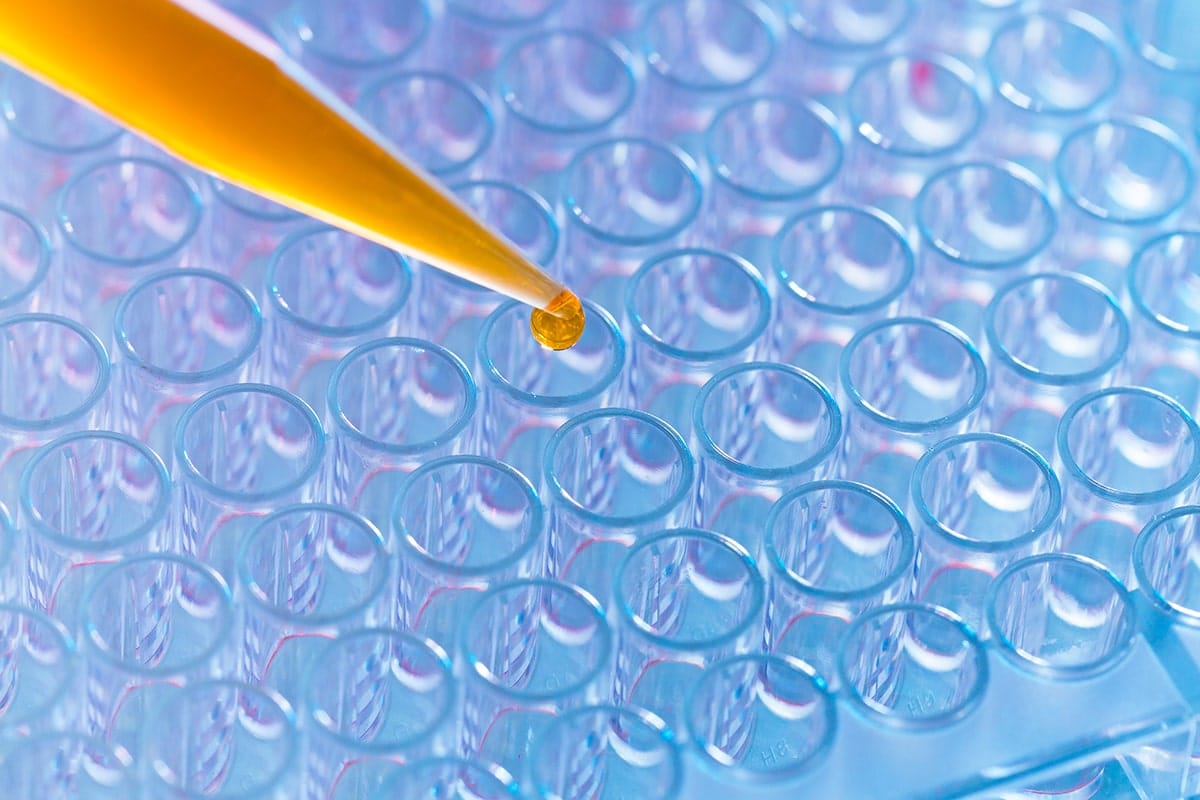Validated bioanalytical methods such as ELISA assays for quantifying drugs, biological products, and biomarkers in complex study materials such as serum, plasma, or urine are crucial for the success of non-clinical and clinical studies. Validating ELISA assays ensures that the experimental results are reliable and provides vital information to support the effectiveness and safety of drugs and other biological products. Quality control measures are an integral part of validated bioanalytical assays. This article discusses validation and quality control in ELISA services to ensure reliable results.
Validation and quality control for accurate and reproducible results
ELISA assay is a robust bioanalytical tool to detect and quantify multiple biomolecules in complex biological samples. Irrespective of the biomolecule of interest, ELISA assays depend on robust antigen-antibody interaction. These interactions are crucial for developing different ELISA protocols. Only after careful development, optimization, and validation of ELISA protocols, does the method generate reliable and accurate results.
Although the scientific literature about bioanalytical methods and ligand binding assays is abundant, the US FDA has distinctly defined the required characteristics for validating bioanalytical methods. These recommendations apply to ELISA assays for basic, applied, toxicology, and diagnostic research. ELISA validation methodology should adhere to recommendations from institutions such as WHO and the FDA as it provides crucial estimations of satisfactory data all over the world.
Must Read: ELISA Immunoassays Unveiled: Purpose, Protocol, and Result Analysis.
According to FDA guidance, ELISA validation should determine the following characteristics:
-
Specificity
-
Linearity (lower limit and upper limit of detection)
-
Accuracy
-
Sensitivity
-
Robustness
-
Precision (intra and inter-assay repeatability and inter-laboratory reproducibility)
The acceptance criteria for each of these characteristics should be defined according to the intended application of the ELISA method.
The quality control process evaluates the testing quality of a bioanalytical assay in identifying and removing errors. Identifying and rectifying mistakes should ideally occur before initiating any experiment. Hence, quality control should be consistently prioritized for biomedical experiments such as immunogenicity evaluations and LC-MS drug testing. ELISA assays should be dependable, reproducible, and rigorous to instill trust and confidence in experimental research. Each ELISA assay requires a unique level of validation and hence, it is vital to have an in-depth understanding of different criteria for accuracy, including specificity, consistency, dilution linearity, and spike recovery.
ELISA service providers should have in-house quality assurance with internal quality controls to ensure that repeated testing and procedures generate the same results consistently. Besides, immunoassay services can participate in external quality assurance programs consisting of experts in ELISA development and validation to guarantee accurate results. Besides, ELISA labs should ensure that their staff receives high-quality training to guarantee accurate data and minimize human errors in testing quality. Moreover, ELISA laboratories should conduct regular preventive maintenance on instruments and tools to avoid breaking down equipment or generating errors.
In Conclusion
Life science and biomedical fields are filled with unprecedented obstacles yet create exciting avenues for researchers working in these domains. However, adequate validation and improved quality control remain crucial for reliable results generated by different bioanalytical establishments such as ELISA labs.




